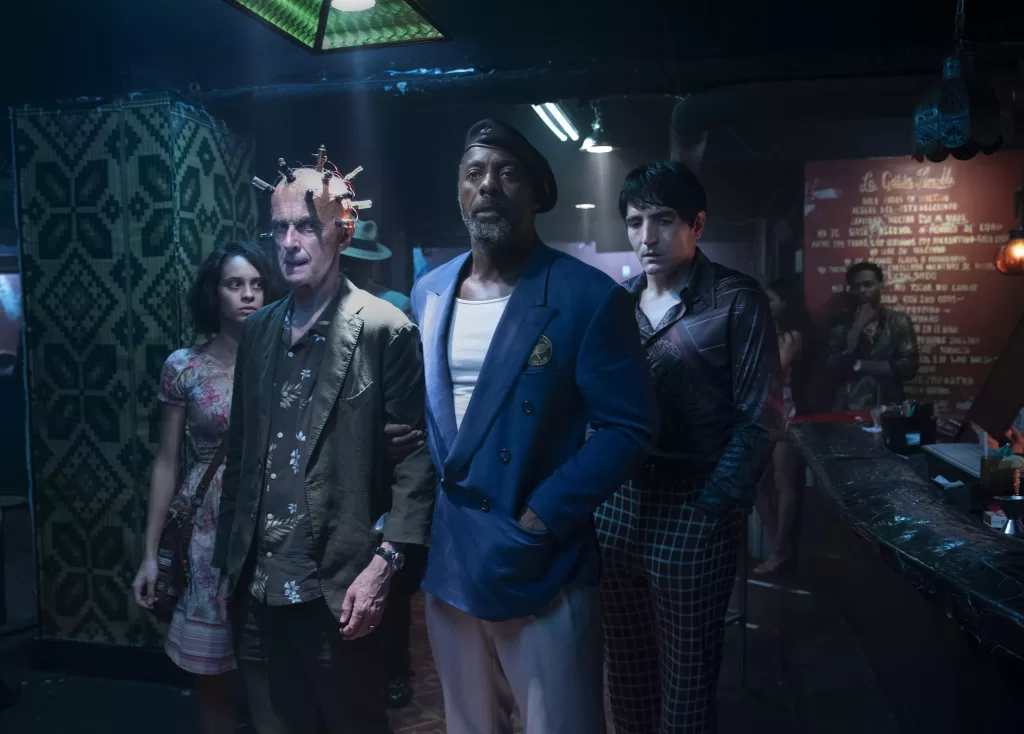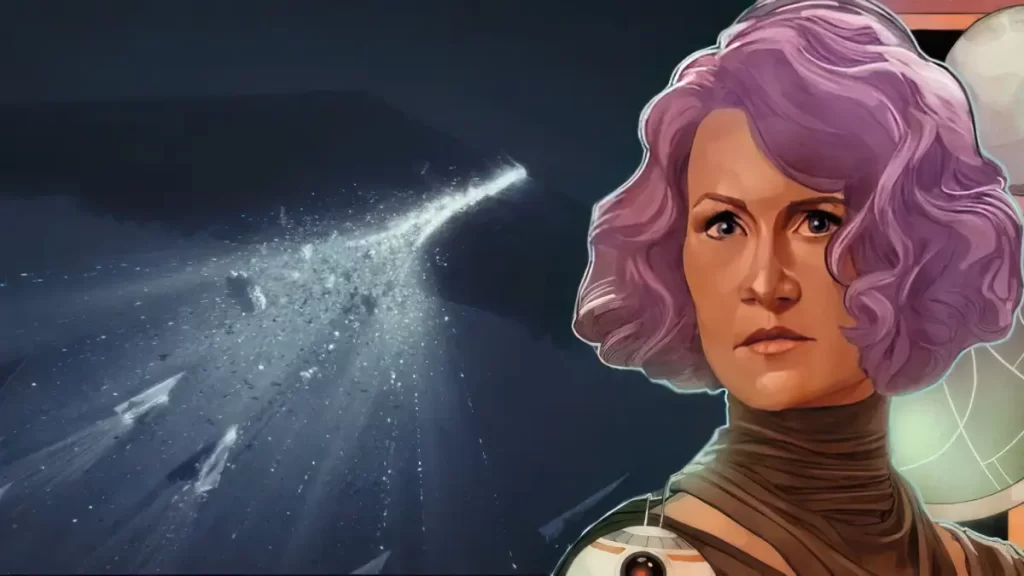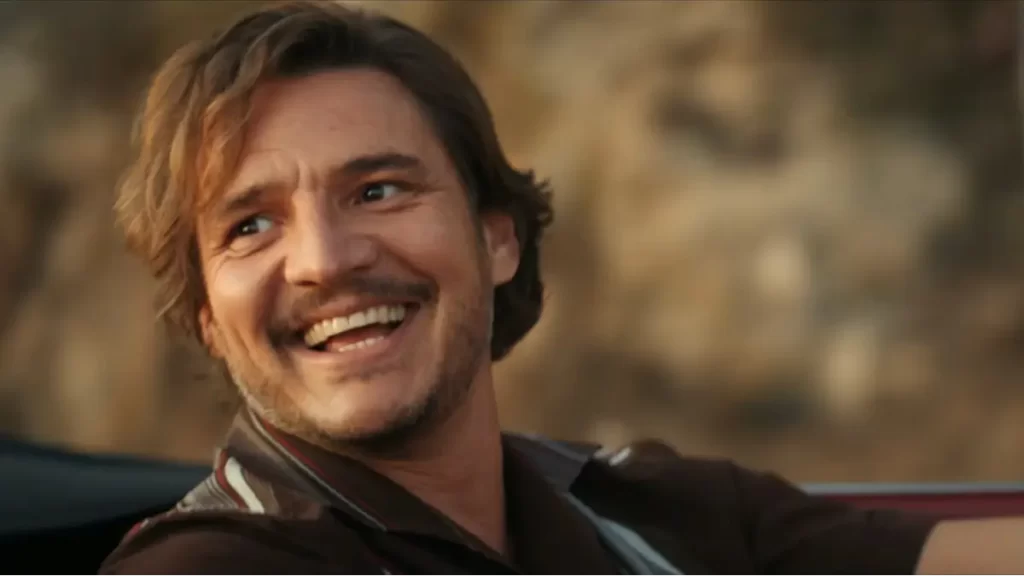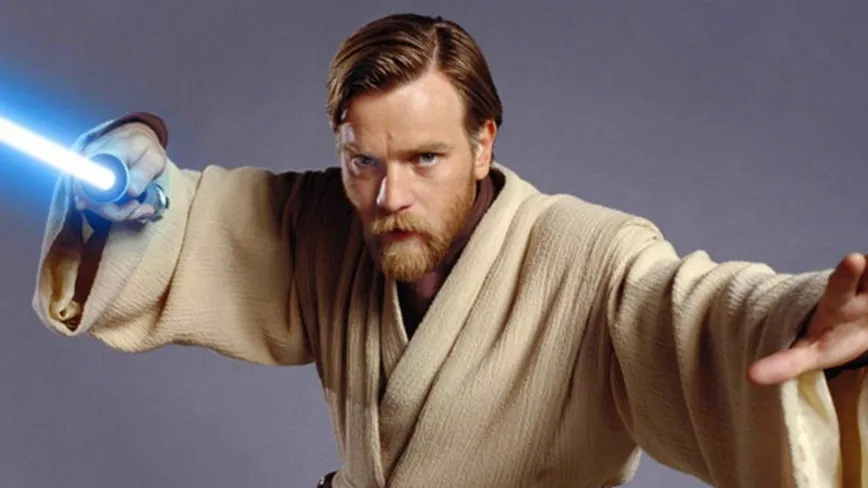With a cast of winning losers and lashings of entertaining violence and humor, James Gunn’s 2021 sequel/reboot is cinematic trash poetry.
There’s a reason this movie’s called The Suicide Squad and not Suicide Squad 2. This scabrous, side-splitting and surprisingly smart supervillain romp is less of a sequel and more of a desperately needed 2021 do-over of the 2016 original. It may not be doing so great in theaters (possibly because it’s streaming now on HBO Max) but The Suicide Squad is the definite article.
It’s written and directed by James Gunn, whose Guardians of the Galaxy movies injected weirdo sci-fi and a hefty dose of humor into the Marvel Cinematic Universe. When old tweets got him into hot water at Marvel, rival comic conglomerate DC snapped him up to revitalize another oddball ensemble: the neon-drenched, face-tattooed movie misfire. And DC’s Dirty Dozen suits Gunn even better than the MCU’s Guardians. Freed of Marvel’s family-friendly fetters, the man who began his career at B-movie trash palace Troma has found the perfect home for his gloriously bad-taste blend of gore and classic rock; ’80s action flicks and forgotten comics; and the most scurrilous of humor and foulest of language. This is a movie where the US government hires a shark that talks like Sylvester Stallone to tear people in half. And it is sick. It is sick as hell.
Like the first movie, the plot involves a bunch of comic book convicts with questionable superpowers being pressed into the service of black ops puppetmaster Amanda Waller, played with dead-eyed steel by Viola Davis. This time they’re infiltrating a South American island to take out a newly installed military junta and wipe out a mysterious superweapon. Curse-filled complications and insanely violent high jinks ensue.
One of the first movie’s biggest strengths was the casting, and the same is true here. Alongside Davis, Joel Kinnaman, Jai Courtney and Margot Robbie return from the first film. After the anemic
The newcomers include Idris Elba as exasperated hitman Bloodsport, combining natural leadership qualities with a foul-mouthed antiheroic streak. He’s locked in a pissing contest with John Cena’s patriotic, psychotic Peacemaker. The pair clashing hilariously as they try to one-up each other in homicidal creativity. Cena is so good and so funny as the uptight Peacemaker (earning a spinoff series on HBO Max next year) he seems like an entirely different actor from the block of wood who fell off the screen with a dull thunk in this year’s Fast and Furious 9.

Joining the Gunn show is a fantastic cast including Nathan Fillion, Michael Rooker, Pete Davidson, Alice Braga, Taika Waititi and Peter Capaldi. (And look out for comic creator John Ostrander as an obnoxious doctor.) Everyone is perfect and clearly having immense fun.
Gunn’s hyperactive camera bobs, weaves and punches at breakneck pace. The movie opens with a savage, and also hilarious, beach assault opening that plays like Saving Private Ryan on a cocktail of drugs. It escalates through inventively nasty action set pieces filled with various jaw-droppingly gory (and amusing) moments to a climax that dials everything up to 11.
So yeah, it’s enormous fun. But The Suicide Squad is far from a stream of self-aware gags in the style of Joss Whedon, another director who crossed between DC and MCU and whose jokey tone in films like Avengers: Age of Ultron and Justice League threatened to undercut the material.
In contrast, Gunn’s jet-black sense of humor oozes from a serious, even angry foundation. This irreverent comic book movie takes shots at very big and serious themes, raging against Western imperialism, American foreign policy and government deception as it indicts interference in foreign countries. Representing this chilling bureaucratic evil, Amanda Waller emerges as perhaps the most hateful villain in the DC universe — certainly the coldest.
In this nihilistic world, Gunn finds sympathy for the devils, inviting viewers to feel compassion and empathy for even the biggest rampaging monsters and goofiest comic book characters. The silliest and scariest are still just people (or walking sharks) with problems.
So rat-chatting millennial Ratcatcher (touchingly played by Daniela Melchior) is invested with genuine hope and heartbreak. And Polka Dot Man’s very silly powers are reimagined as genuinely creepy body horror. David Dastmalchian brilliantly channels a tortured psychological torment that lends weight to the absurd character — while also setting up a truly nonsensical non-sequitur of a visual gag, of course.
Gunn is also wonderfully interested in the little people in the background. Even the most anonymous extras get little details sketched in to make them feel like a person, even if that detail is swiftly followed by a gory and horrifying death. The squad’s backroom staff of button-pushers are entertainingly fleshed out (for reasons that become clear by the credits) and even enjoy a spot of karmic revenge for their bosses’ rather harsh treatment of the support staff in the first film.
While it’s clearly a cut above the muddled mess of the original 2016 film directed by David Ayer, the sequel is far from a riposte or rejection. Version 2.0 highlights the weaknesses of the first film (which incidentally won an Oscar.
Watching Gunn’s version made me look back on the original and think: Ohhhh, so this is what they were trying
Ayer took heat for his shamelessly obvious wedding DJ needle drops, for example, but Gunn opens the film’s prison scenes with Johnny Cash singing Folsom Prison Blues. The film’s playlist isn’t as showy as Guardians of the Galaxy’s much-loved soundtracks
The Suicide Squad is demented and delicious, heartfelt and horribly hilarious.



